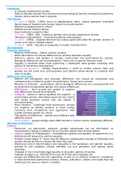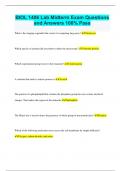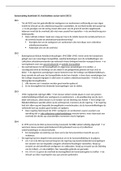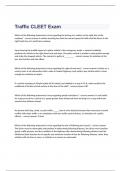Summary
FEMINISM SUMMARY AND ESSAY PLANS (A LEVEL EDEXCEL POLITICS
- Module
- Feminism
- Institution
- PEARSON (PEARSON)
This document includes everything you need about feminism. It has detailed summary of the content, each key thinker, essay plans for the state, the economy, society and human nature.
[Show more]









